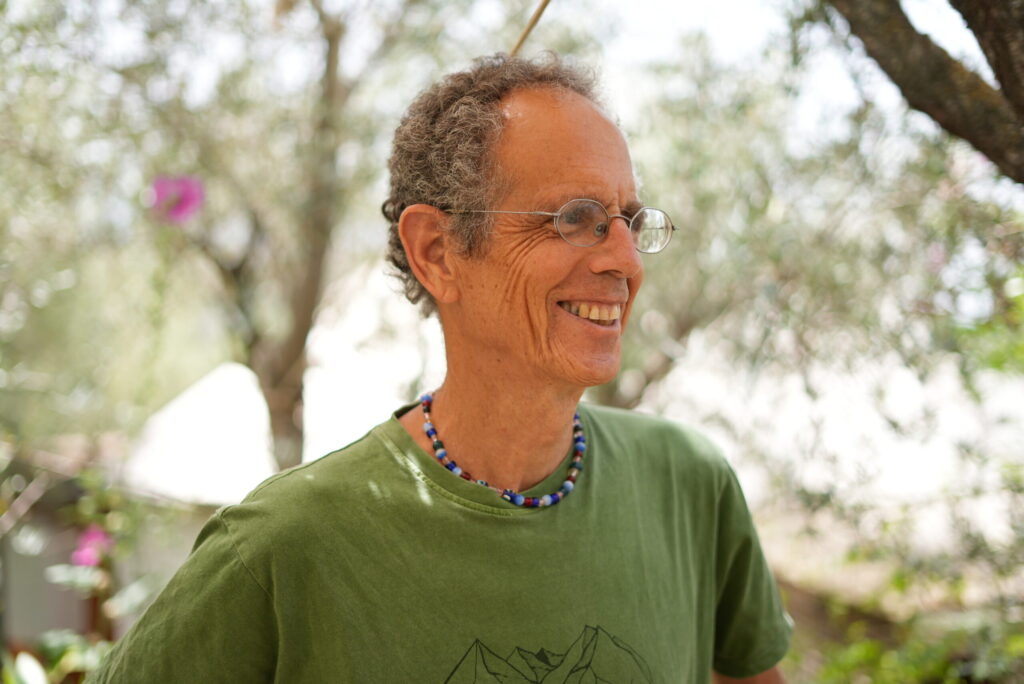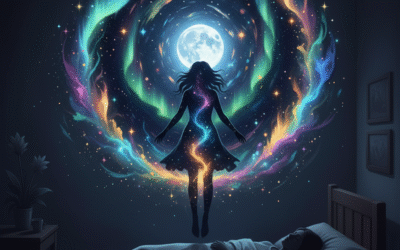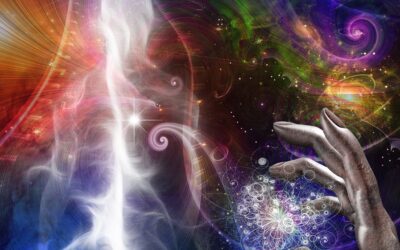Intro
For decades, psychedelics were seen only through the lens of counterculture. Today, the story is changing. Researchers, therapists, and even veterans’ groups are exploring how psychedelic therapies with substances like psilocybin, MDMA, and ayahuasca can support healing from depression. PTSD and anxiety when used in safe, guided settings. Psychedelic-assisted therapy is no longer a whisper—it’s entering mainstream conversations around mental health.
If you’ve ever wondered “How does psychedelic therapy work?” or “Is psychedelic therapy legal?” you’re not alone. In this post, we’ll unpack how these therapies function, what the research says, and where things stand legally. Along the way, we’ll also explore how psychedelic experiences often overlap with spiritual practices—reminding us that healing isn’t just about the brain, but also about energy, meaning, and connection.
What Is Psychedelic-Assisted Therapy?

Psychedelic-assisted therapy combines a psychedelic substance with structured support from a trained therapist or guide. Unlike recreational use, this approach emphasizes preparation, set and setting, and integration afterwards. The idea isn’t to chase a “trip,” but to use the altered state as a tool for self-exploration and healing.
For example, psilocybin therapy (using the psychoactive compound in “magic mushrooms”) has shown promising results for people with treatment-resistant depression. MDMA-assisted therapy is currently in late-stage clinical trials for PTSD, especially among veterans. These therapies often include several phases: preparation, the psychedelic session itself, and integration sessions to make sense of the insights that arise.
How Does Psychedelic Therapy Work?
The exact mechanisms are still being studied, but psychedelics seem to “quiet” the brain’s default mode network—the part responsible for rigid thought patterns and self-talk. When this network relaxes, people often experience a sense of openness, connection, or even transcendence.
On a psychological level, this can allow someone with depression to break free from cycles of negative thinking. For those with PTSD, it can soften the grip of traumatic memories, creating space for new meaning and healing. On a more human level, many describe these sessions as some of the most meaningful experiences of their lives.
Psychedelic Therapy for Depression and Anxiety
Depression and anxiety are two of the main areas where psychedelic-assisted therapies are showing results. In several studies, a single guided psilocybin session led to rapid and lasting reductions in depressive symptoms. Unlike conventional antidepressants, which often require daily use, psychedelic therapy seems to work more like a “reset button” for the mind.
For anxiety—especially end-of-life anxiety—psilocybin has helped people face mortality with less fear and more acceptance. Think of it less as a “cure” and more as a powerful intervention that can shift perspective, relieve symptoms, and open the door to deeper healing.
Psychedelic Therapy at Home: Is It Safe?
With growing interest, some people are exploring psychedelic therapy at home. While this might sound appealing, it comes with risks. Psychedelics are powerful substances, and without proper guidance, the experience can be overwhelming or even harmful.
If you’re considering this, safety is key: never go it alone, have a trusted sitter, and research thoroughly. But the gold standard remains guided therapy with trained professionals, where set, setting, and integration are properly supported.
Psychedelics and Spiritual Practice: Two Sides of the Same Coin?

Psychedelic experiences often share striking similarities with spiritual practices like meditation, breathwork, or deep prayer. People report feelings of unity, ego-dissolution, or encounters with something greater than themselves.
This overlap suggests that psychedelics may act as a shortcut to states that monks, yogis, and mystics have cultivated for centuries. Of course, psychedelics are not the only way—many people find equally profound insights through consistent spiritual practice.
In fact, in Mastering Energy Reading, we explore how awareness itself can be expanded and refined without substances. Psychedelics can open the door, but practices like energy reading, meditation, and presence help us stay there in daily life.
Psychedelic Therapy: A New Paradigm of Care
At its heart, psychedelic-assisted therapy represents a new paradigm for mental health. Instead of managing symptoms indefinitely, it invites deep, transformative healing. It recognizes that people aren’t just brains with chemical imbalances—they’re whole beings with stories, energies, and the capacity for profound change.
We’re standing at a crossroads. Psychedelics won’t replace all treatments, but they’re opening possibilities for those who feel stuck, unheard, or hopeless.
Is Psychedelic Therapy Legal?
The legal status of psychedelic therapy depends on where you are. In the U.S., psilocybin is decriminalized in some cities and states, and Oregon is rolling out licensed psilocybin therapy programs. MDMA-assisted therapy is expected to receive FDA approval soon for PTSD. In Canada, special exemptions allow psilocybin therapy for end-of-life care.
Globally, ayahuasca is legal in some religious contexts, while DMT and LSD remain prohibited in most places. The landscape is shifting quickly, so always check local laws.
FAQ: Psychedelic Therapies

Are psychedelics good for anxiety?
Yes, studies show psychedelics like psilocybin can reduce anxiety, especially in end-of-life care. They seem to help by shifting perspective, quieting fear-based patterns, and fostering a sense of acceptance. While not a cure-all, many people describe a lasting sense of calm and clarity after guided sessions.
Does DMT help with PTSD?
There’s limited research on DMT specifically for PTSD, but anecdotal reports suggest it can help process trauma. However, most clinical studies have focused on MDMA and psilocybin. For now, DMT remains more associated with spiritual exploration than structured therapy.
Is ayahuasca a drug?
Ayahuasca is a traditional Amazonian brew made from plants containing DMT and MAO inhibitors. While technically a psychoactive “drug,” it’s more accurate to describe it as a sacred medicine used in ceremony. Its effects can be intense, leading to deep insights, emotional release, and sometimes physical purging.
Is DMT legal?
In most countries, DMT is classified as an illegal substance. Exceptions exist where ayahuasca is legal for religious use. In practice, this means that while some groups have legal protection, most individuals do not. Always research local laws before considering use.
Is psychedelic therapy illegal?
It depends on where you are. In many places, psychedelics remain prohibited, but research trials and exemptions are creating exceptions. Oregon’s psilocybin programs and the anticipated FDA approval of MDMA therapy are signs of change.
What are examples of psychedelic-assisted therapies?
Examples include psilocybin therapy for depression, MDMA therapy for PTSD, and ketamine-assisted therapy for severe depression. Ayahuasca and ibogaine are also used in ceremonial or clinical settings, though legality varies widely.
What are the best psychedelics for mental health?
Psilocybin and MDMA are currently the most studied, showing strong benefits for depression, anxiety, and PTSD. Ketamine is also used clinically and legally in many countries. The “best” often depends on the condition being treated and the therapeutic framework.
What are the most therapeutic psychedelics?
Psilocybin, MDMA, and ketamine top the list based on research. Ayahuasca and ibogaine are powerful too, though they require careful guidance. Each has unique effects, so therapeutic use should always be tailored to the individual.
What is natural psychedelic therapy?
This usually refers to plant-based psychedelics like psilocybin mushrooms, ayahuasca, or peyote used in therapeutic or ceremonial settings. The idea is to work with nature’s medicines rather than synthetic substances.
Why do psychedelics work?
They seem to work by breaking rigid thought patterns, increasing brain connectivity, and allowing emotional release. Combined with therapeutic guidance, they help people reframe trauma and reconnect with meaning.

Final Thoughts
Psychedelic therapy is not a magic pill, but it’s opening doors that traditional medicine hasn’t been able to unlock for everyone. From treating depression and PTSD to helping people reconnect with meaning and purpose, these therapies are reshaping how we think about mental health and healing. What stands out most is the mix of science and spirituality: clinical studies back up the results, while the lived experiences often feel deeply personal, even sacred.
If you’re curious about this path, the best first step is learning. Look into reputable programs, ask about safety, and don’t be afraid to compare this work with practices you may already know—like meditation or energy awareness. In fact, if you’ve been drawn to exploring consciousness, you might enjoy my Mastering Energy Reading, which shows how tuning into subtle layers of awareness can shift your daily life.
The future of mental health seems to be moving toward a more holistic model—one that doesn’t just focus on symptoms, but on the whole human being. Psychedelic-assisted therapy is part of that change, and while it’s still developing, it carries real hope. Maybe the most important takeaway is this: whether through therapy, meditation, or simply slowing down to listen to yourself, healing begins the moment you’re willing to explore.
Subscribe
If this guide sparked something in you, we invite you to stay close. Subscribe to our newsletter for more insights on psychedelic therapies, guided practices, and upcoming events that support your energy awareness and spiritual growth.
If you’d like to support us, please subscribe to our YouTube channel, buy me a coffee, or join our Aura Community.










